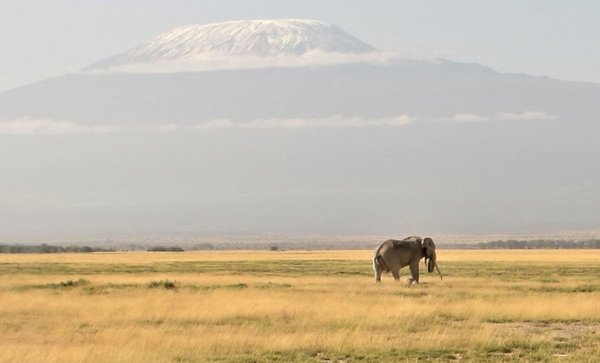 Read this article in French
Read this article in French- Share this article
- Subscribe to our newsletter
Climate change compromises biodiversity targets
A considerable number of existing and proposed post-2020 biodiversity targets by international organisations are at risk of being severely compromised due to climate change, even if other barriers such as habitat exploitation are removed, experts from the Karlsruhe Institute of Technology (KIT) warned in late December 2020. They cautioned that global warming accelerates the loss of biodiversity. Vice versa, measures to protect biodiversity may also mitigate the impacts of climate change.
About a million plant and animal species are endangered worldwide. At least 13 of the 17 sustainable development goals of the United Nations, however, depend on biodiversity, including species diversity, the genetic diversity within species and the diversity of ecosystems.
In addition to the over-exploitation of natural resources on land and in water, or environmental pollution, climate change also causes loss of biological diversity. This impact will increase in future.
Coordinating biodiversity targets with the Paris Agreement
For a study, published in the Proceedings of the National Academy of Sciences of the United States of America (PNAS), researchers analysed the set of revised biodiversity-protection targets currently negotiated by the Parties for the time after 2020, which are to be reached by 2030 or 2050. They found that many existing or proposed targets are at risk due to global warming, even if the mean global temperature increase would remain at the lower limit of projections.
“It certainly is a big challenge, but also an important opportunity to better handle at the political level the interactions between climate change and biodiversity loss, and to better coordinate the biodiversity targets with the Paris Agreement on Climate Change and the Sustainable Development Goals,” explains Almut Arneth, Professor at the Atmospheric Environmental Research Division of the Institute of Meteorology and Climate Research (IMK-IFU/KIT). According to her, the biodiversity targets proposed should, therefore, consider climate change much more explicitly.
Better coordination of political agreements needed
Arneth gives an example: A biodiversity target for nature reserves must consider the fact that composition and growth of vegetation will change with climate change, and that certain species of plants and animals will either migrate or be threatened if climatic conditions are changing.
For instance, climate change causes mountain glaciers to shrink. In semi-arid regions, however, lower-lying valley ecosystems depend on melting water from glaciers in summer. If this melt-water flow will decrease due to retreating glaciers, precipitation alone may not be sufficient to supply the plants in the catchment with water. This will then also affect the animals that are dependent on the plants.
The study underscores the demand to quickly and significantly reduce anthropogenic greenhouse gas emission and to halt climate change. Vice versa, it also shows that measures to protect biodiversity would contribute to climate protection. “Better coordination of political agreements and scientific findings may accelerate the urgently needed “decarbonisation economy” and ensure slowdown of climate change by biodiversity protection measures,” Arneth summarises.
(KIT/ile)
Read more at KIT website
Original Publication:
Almut Arneth, Yunne-Jai Shin, Paul Leadley, Carlo Rondinini, Elena Bukvareva, Melanie Kolb, Guy F. Midgley, Thierry Oberdorff, Ignacio Palomo, Osamu Saito: Post-2020 biodiversity targets need to embrace climate change. PNAS, 2020. DOI: 2009584117





Add a comment
Be the First to Comment